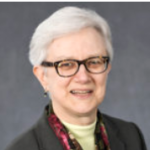
Readings:
Reading 1: Isaiah: 35:4-7a
Responsorial Psalm: Psalm: 146:6-7, 8-9, 9-10
Reading 2: James: 1:17-18, 21b-22, 27
Gospel: Mark: 7:31-37
“Normally,” US summers bring a slower pace to life. But summer 2021gave us –
• Global weather weirding
• Another COVID surge
• US privileged access to COVID vaccines
• IPCC, “AR6 Climate Change 2021: The Physical Science Basis”
• Global warming status is “CODE RED”!
• Earthquake in Haiti followed by (seemingly cruelly named)
• “Hurricane Grace” hits Haiti
• Taliban captured the presidential palace in Kabul!
And the Church calls this “Ordinary Time?”
During Ordinary Time, from September 1st – The World Day of Prayer for Care for Creation thru October 4th – The Memorial of St. Francis of Assisi, the global Christian Church calls believers to observe the “Season of Creation.” Christians are summoned to focus on restoration and hope, a jubilee for our Earth, and to discover radically new ways of living with creation. Notably, Pope Francis reminded us that the ecological crisis is first, a spiritual crisis.
Thus, like the people of Decapolis in today’s Gospel, who, having experienced God’s restorative power (Mk 5:17) brought the blind and mute man to Jesus for healing, we must first, intentionally recall our encounters with God’s empowerment. We need to ask for healing of our blindness and deafness to science, Church teaching concerning our suffering Earth, and vulnerable sisters and brothers of all kinds, and then, act to facilitate God’s healing.
Today’s Isaiah reading evokes the restorative power of the God of Jesus Christ, whose invitation awaits our response. Psalm 146 recalls God’s justice, liberation, mercy, and offer of restoration throughout all generations. St. James upholds the God-given dignity of all and renounces all idolatrous assertions of egotistic deserts and oppressive judgments against our sisters and brothers. These truths stand behind today’s Gospel.
Mark’s Jesus models for us a way to spiritual healing that we are well-advised to pursue amid our “Climate Emergency.” First, like the people of Decapolis, when fearful, anxious, and powerless, we can gain communal support by sharing personal experiences of God’s healing action (Mk 5:17). Together, in communion with God in the presence of Jesus, we will receive renewal and inspiration.
Secondly, like the blind and mute man, we need to respond personally, courageously, and freely to Jesus’ invitation to come “away from the crowd,” i.e., the distractions and chaos of our times. Admitting our neediness is difficult, but without an open attitude, we cannot learn.
The order of Jesus’ actions is equally important. He first looked up to heaven and groaned, indicating the source of all healing is God, and signaling the serious human need for healing! Finally, Jesus spoke “Ephphatha!” — that is, “Be opened!” (Mk 7:34).
Significantly, Jesus silenced the crowd, but not the man (v 36)! For millennia, this man’s courageous decision to go “off by himself with Jesus” has emboldened many. His response to Jesus is commended to Christians in the Rite of the Sacrament of Baptism: “The Lord Jesus made the deaf hear and the dumb speak. May he soon touch your ears to receive his word, and your mouth to proclaim his faith, to the praise and glory of God.” Experiencing God’s healing is a gift, “Good News” to be shared. This reality is reinforced in Lumen Gentium, 40.
The Season of Creation invites our serious moral examination of personal contributions to human-caused “climate emergency.” A moral indictment of conscience challenges all of us to prayerful action. Like the blind and mute man, St. Francis of Assisi was healed and emboldened during personal prayerful encounters with Jesus. Ultimately, he renounced power and wealth and embraced a leper (cf. Jas 2:1-5). Near-death and assured of salvation, Francis defined his Canticle of the Creatures, as a call to conversion, penance, and praise: “These creatures minister to our needs every day; without them we could not live; and through them, the human race greatly offends the Creator. Every day we fail to appreciate so great a blessing, by not praising, as we should, the Creator and dispenser of all these gifts.”
Today, salvation requires we move “away from the crowds,” receive God’s offer of empowerment and healing, make the connections between the suffering of people and the planet, and act.
Dawn M. Nothwehr, OSF
Professor of Catholic Theological Ethics
Erica and Harry John Family Chair of Catholic Theological Ethics